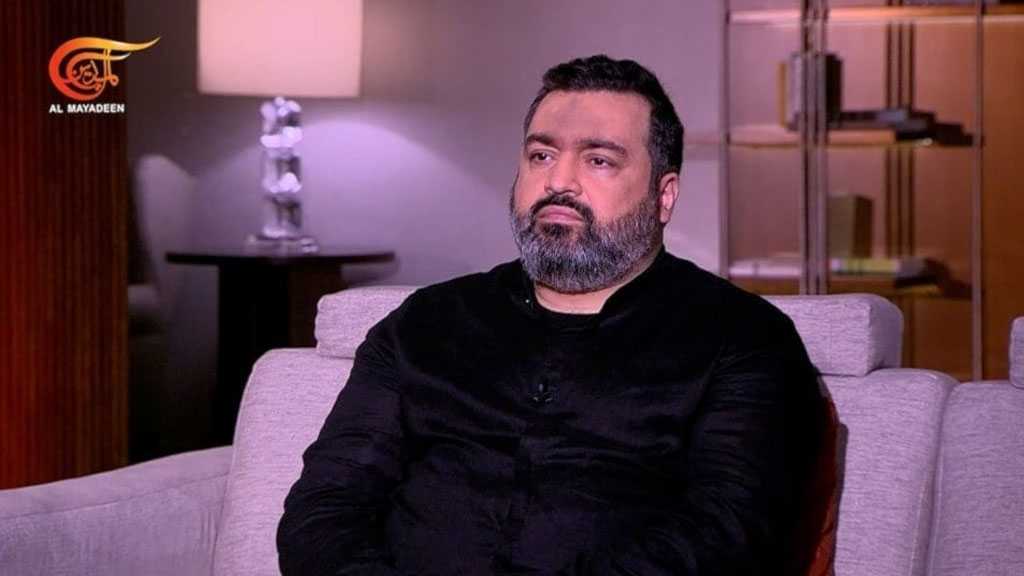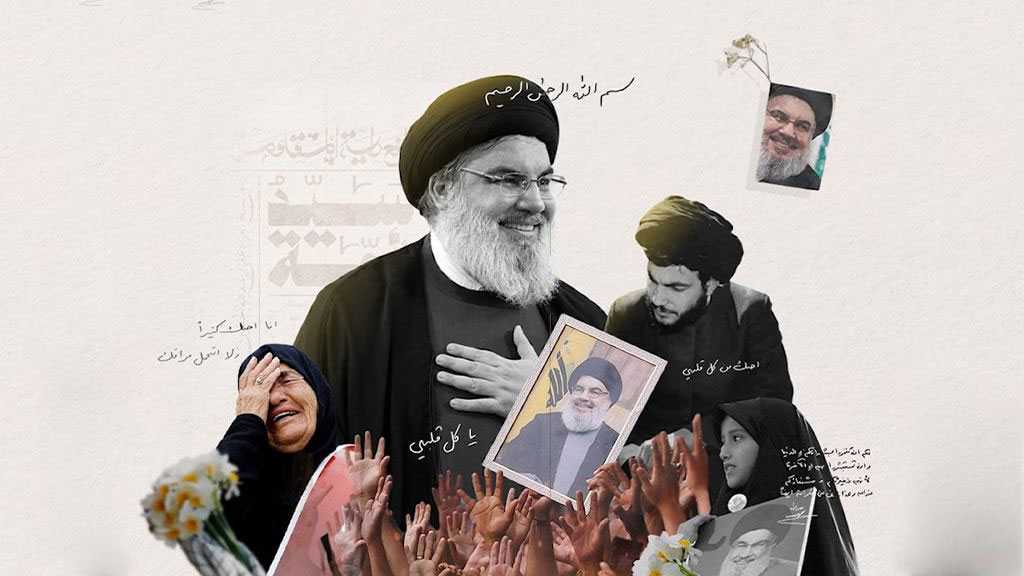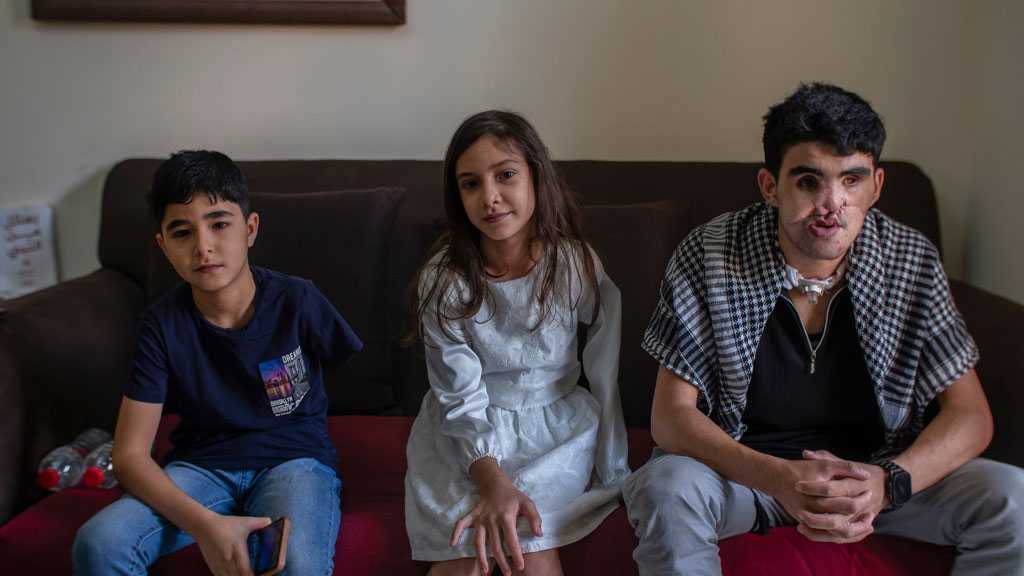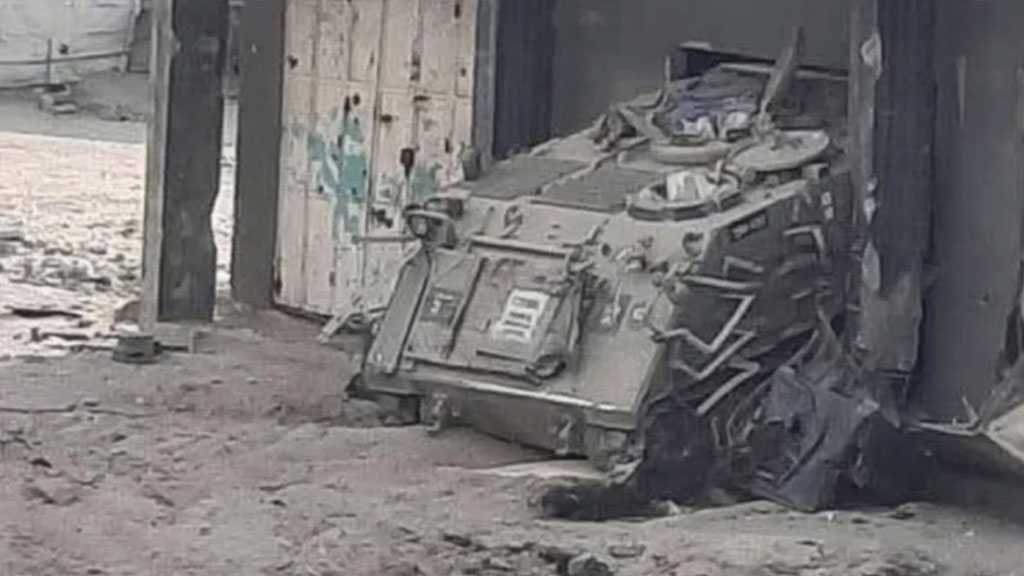Nasrallah: Mastermind of Hizbullah`s guerrilla war

Source: AFP, 13-7-2006
By Nagib Khazzaka
Sheikh Hassan Nasrallah, the head of the Lebanese Hizbullah movement at the heart of the latest Middle East crisis, is a charismatic and skilled negotiator and arguably one of the most powerful people in Lebanon.
Regarded as Hizbullah`s military mastermind, Nasrallah has developed a personality cult among his supporters and earned a respected place in the Shiite community.
The attack dealt another embarrassing blow to the "Israeli" military and was hailed as a another victory for the fighters of Hizbullah, who were instrumental in causing "Israel`s" pullout from Lebanon in 2000.
On Wednesday, Nasrallah demanded that "Israel" free prisoners in exchange for the return of the two soldiers seized on Wednesday.
Although "Israel" has refused any swap, the Jewish (Zionist) state in January 2004 agreed to a massive prisoner exchange mediated by Germany.
During his 14 years at the helm of Hizbullah, the leader of the Party of God who was born in a poor area of Beirut in August 1960, has also marked internal successes in Lebanon.
While his movement is seen still by many in the West as a terrorist group, it now has 14 MPs in the Lebanese parliament and a minister within the government.
Aged 45, Nasrallah is a skilled orator with a sense of humour unusual among fundamentalist movements in the Middle East.
He was elected secretary-general of Hizbullah in 1992 after "Israel" killed his predecessor Abbas al-Musawi, his wife and three-year-old daughter in an air attack.
Nasrallah gained much of his early experience in the rival Amal movement but pulled out, with other officials, in 1982 in a dispute over ways to confront the situation resulting from the full scale "Israeli" invasion of Lebanon.
After praising his militia men`s success in capturing the two "Israeli" soldiers and killing of others, Nasrallah said he did not want to "drag Lebanon into a war" but that "if the enemy wants escalation, we are ready".
With "Israel" vowing not to negotiate for the soldiers` release, Nasrallah was equally firm, saying the two "Israelis" "will only return home through indirect negotiations and an exchange of prisoners".
"This is the only available way to release" Lebanese prisoners held in "Israel", said the bearded and bespectacled Hizbullah leader, insisting "the "Israelis" always first say they do not wish to negotiate, but eventually they accept." Nasrallah has a precedent.
In January 2004, "Israel" and Hizbullah carried out a swap through German mediation that saw hundreds of Arab detainees released, the return of the bodies of three soldiers, and the freeing of an "Israeli" businessman (colonel).
The Hizbullah chief, who is married with children, was personally involved in those negotiations and in earlier ones which included him seeing the return home of the body of his eldest son Hadi -- killed in a clash with "Israeli" troops in 1997.
Hizbullah`s resistance to the "Israeli" "Grapes of Wrath" military operation ("Israeli" April 1996 Aggression) in Lebanon in 1996, cemented Nasrallah`s role as symbol of the resistance and secured him a privileged place with "Israel"`s arch foe, Syria.
His stature reached a pinnacle with the deployment in force of Hizbullah fighters along the Lebanese-"Israeli" frontier during the "Israeli" pullout in May 2000.
By Nagib Khazzaka
Sheikh Hassan Nasrallah, the head of the Lebanese Hizbullah movement at the heart of the latest Middle East crisis, is a charismatic and skilled negotiator and arguably one of the most powerful people in Lebanon.
Regarded as Hizbullah`s military mastermind, Nasrallah has developed a personality cult among his supporters and earned a respected place in the Shiite community.
The attack dealt another embarrassing blow to the "Israeli" military and was hailed as a another victory for the fighters of Hizbullah, who were instrumental in causing "Israel`s" pullout from Lebanon in 2000.
On Wednesday, Nasrallah demanded that "Israel" free prisoners in exchange for the return of the two soldiers seized on Wednesday.
Although "Israel" has refused any swap, the Jewish (Zionist) state in January 2004 agreed to a massive prisoner exchange mediated by Germany.
During his 14 years at the helm of Hizbullah, the leader of the Party of God who was born in a poor area of Beirut in August 1960, has also marked internal successes in Lebanon.
While his movement is seen still by many in the West as a terrorist group, it now has 14 MPs in the Lebanese parliament and a minister within the government.
Aged 45, Nasrallah is a skilled orator with a sense of humour unusual among fundamentalist movements in the Middle East.
He was elected secretary-general of Hizbullah in 1992 after "Israel" killed his predecessor Abbas al-Musawi, his wife and three-year-old daughter in an air attack.
Nasrallah gained much of his early experience in the rival Amal movement but pulled out, with other officials, in 1982 in a dispute over ways to confront the situation resulting from the full scale "Israeli" invasion of Lebanon.
After praising his militia men`s success in capturing the two "Israeli" soldiers and killing of others, Nasrallah said he did not want to "drag Lebanon into a war" but that "if the enemy wants escalation, we are ready".
With "Israel" vowing not to negotiate for the soldiers` release, Nasrallah was equally firm, saying the two "Israelis" "will only return home through indirect negotiations and an exchange of prisoners".
"This is the only available way to release" Lebanese prisoners held in "Israel", said the bearded and bespectacled Hizbullah leader, insisting "the "Israelis" always first say they do not wish to negotiate, but eventually they accept." Nasrallah has a precedent.
In January 2004, "Israel" and Hizbullah carried out a swap through German mediation that saw hundreds of Arab detainees released, the return of the bodies of three soldiers, and the freeing of an "Israeli" businessman (colonel).
The Hizbullah chief, who is married with children, was personally involved in those negotiations and in earlier ones which included him seeing the return home of the body of his eldest son Hadi -- killed in a clash with "Israeli" troops in 1997.
Hizbullah`s resistance to the "Israeli" "Grapes of Wrath" military operation ("Israeli" April 1996 Aggression) in Lebanon in 1996, cemented Nasrallah`s role as symbol of the resistance and secured him a privileged place with "Israel"`s arch foe, Syria.
His stature reached a pinnacle with the deployment in force of Hizbullah fighters along the Lebanese-"Israeli" frontier during the "Israeli" pullout in May 2000.
- Related News




